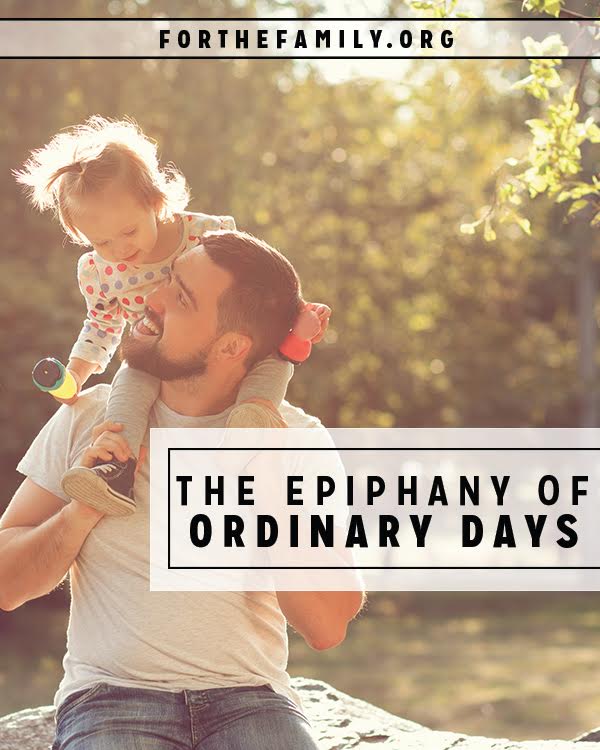7 Strategies for Talking to Your Kids About Sex
I remember “the talk.”
I was about 7 years old, and I must’ve said something to trigger it. I remember little, aside from feeling awkward and embarrassed.
With “the talk” over, life went on. In time, I gained further insight from equally ignorant peers, television soapies and inappropriate romance novels. It was only when I was in my teens that conversations at home were more frank, and I gained better answers to my questions.
Looking back, I realize that my folks were on as much of a journey as me. Their walk together with the Lord only began in earnest when I was already in middle school. Yet, still, I found myself not too sure where wisdom ended and foolishness began.
My head longed for the gift of purity for my one-day husband; my heart longed for teenage romance; and my hormones? Well, they pretty much ruled the roost. As a result, I flirted with inappropriate physical affection with a few boys. I fell in and out of love easily and with abandon. And then I met my husband-to-be. I was 15. He, 17.
In the beginning, neither of us had the maturity to handle conversations about sex or marriage. In fact, our initial approach to our relationship was “let’s have a fun summer romance!” Six years later, we said our “I do”s, but not without a few regrets.
Then, 10 years after we first clapped eyes on each other, we fell in love with someone else: our first-born daughter.
And that’s when a new conversation began.
At times it was one inside my own head; other times it was with my husband. Then it became a conversation we started having with our daughter. And our next daughter. And now our sons.
It’s a conversation that never ends. It’s a source of laughter, togetherness, joy and understanding. Our kids ask questions, they giggle and joke, but they keep coming back for more.
It has been 12 years of parenting, and it’s a journey we’re still very much on. We still have a lot to learn. And we know that no method or mindset is foolproof.
But… if I had to do these past 12 years over, when it comes to sex and relationships, I would still:
1. Answer their questions.
We start by replying to their questions with honest answers when they are very young. No “birds and bees,” no “storks,” no complicated seed stories or biology lessons. We simply answered and chose not to be embarrassed. After all, their curiosity about babies was as innocent as puzzling over rainclouds. So, we answered their questions and let them lead the conversation.
2. Continue the conversation.
We feel that it’s not “the talk” so much as the “ongoing conversation.” As our children have grown older, these chats are just part of natural conversation. We talk, all of us, back and forth, listening and answering. In the early days we’d let them ask questions and take their lead. Nowadays, we also ask a few questions. We engage. It becomes a discussion. Yes, there are moments of embarrassed laughter, but they’re not afraid to talk with us.
3. Be honest.
We want them to know the whys of the decisions that govern relationships in our home. So, we share about our victories, struggles, mistakes and regrets. We share about others’ better examples. We chat through wise decisions versus foolish ones – often with examples of our own folly. And we emphasize grace: for no mistake, no slip up, no sin is unforgivable.
4. Be the one.
This world is filled with horrific perversions of the beautiful gift of sex. In time, our kids are going to learn about them. When these things crop up, I want their first port of call to be “mom and dad.” And, so far, that’s exactly how it’s played out. Living in Africa, prostitution and HIV are just a couple of the horrifying things they have learned about. Yet, it has been in the context of safe, gentle discussion with us that they’ve been able to ask the questions that come to mind. They are conversations that debrief, clarify, contextualize, and ultimately remind us of the beauty of married sex.
5. Give them tools.
One of the things we talk about is how to avoid or deal with sticky situations. Whether it’s sex, or swearing, or reacting to that mean girl, we talk about tools. We ask, “What’s a good thing to do if X happens?” We explore what the Bible has to say. We pray. It’s one thing knowing it’s a bad idea to take an unwise path, but it’s another finding yourself swept along with no escape route.
So we offer tools of escape. Sometimes it’s a phrase they can use. We have a mom-password, in case a stranger ever tries to convince them that I am incapacitated and they need to gather the kids to a place of safety. If the stranger doesn’t know our family password, then the kids know what to do. With all the dangers online, we have made them aware of the need for parental controls on electronic devices – for their safety from predators and, quite frankly, from themselves. We also have a privacy policy that applies to information in our home: “Those who have nothing to hide, hide nothing.” While we allow our kids reasonable and age-appropriate privacy, they’re also fully aware that we have access to everything and can and will exercise checks. In a sense, it is a relief to the kids to know that they do not have to carry the burden of another’s secret.
6. Show affection.
We give hugs, kisses and loads of “I love you’s” in this house. And there is no holding back from spousal displays of affection. We want the kids to see our commitment to love each other not just in our words but also in our actions. Oh, we have our disagreements and it’s not always plain-sailing, but they get to see affection, they get to see apology and they get to see our vows at work over and over.
7. Pray.
No matter what steps we take as parents, we cannot account for every circumstance or every heart. At the end of the day, our kids will have to face countless crossroads on their own and they, like us, will have their fair share of poor decisions. So I pray. I pray for purity in their words, thoughts and deeds. And I pray for ours. I pray about future relationships of all kinds. And I pray that the Lord will use us as parents to grow and equip them for every good work: because of our parenting and in spite of it. And I pray, whether they one day marry or remain single and celibate, that their lives will bring glory to Him.
Blessings,
Taryn Hayes
 Taryn Hayes loves that she gets to live in the shadow of one of the new 7 Natural Wonders of the World: Table Mountain. Since the age of four, she has called Cape Town, South Africa her home. It is here where she came to love Jesus at the age of six and meet her loving husband, Craig, at the age of 15. These days, she is in the thick of raising four diverse and wonderful children. Homeschooling her kids is a large focus of her day-time hours, but by night, Taryn likes to write. Her first published youth novel is Seekers of the Lost Boy, about a 12-year-old homeschooled boy, Simon. He discovers a mystery message-in-a-bottle and finds himself catapulted into an incredible adventure.
Taryn Hayes loves that she gets to live in the shadow of one of the new 7 Natural Wonders of the World: Table Mountain. Since the age of four, she has called Cape Town, South Africa her home. It is here where she came to love Jesus at the age of six and meet her loving husband, Craig, at the age of 15. These days, she is in the thick of raising four diverse and wonderful children. Homeschooling her kids is a large focus of her day-time hours, but by night, Taryn likes to write. Her first published youth novel is Seekers of the Lost Boy, about a 12-year-old homeschooled boy, Simon. He discovers a mystery message-in-a-bottle and finds himself catapulted into an incredible adventure.
You can connect with Taryn and learn more about the homeschooled characters from her Seekers series on her website or on Facebook, Twitter and Youtube.








The very fact that there IS even a term such as “The Talk” infuriates me. Can you imagine if you had “The Talk” about any other topic, such as eating their food? And then we’d just magically hope they’d figure out the details such as table manners, trying different things tastes, helping wash up – all by themselves.
I love that analogy – absolutely, it would be weird to have once-off talks with our kids about other essential world views or basic living requirements. Thanks for sharing your thoughts here!
Great word, Taryn!
Thanks, Sam. So very much looking forward to having The Green Ember in our hands! 🙂 Just backed it today!
Great post, Taryn! Studies show kids/teens want to be able to talk to their parents about sex and starting young, with honest, age-appropriate information, is the best way to create a atmosphere of safe, open discussion. It also promotes greater comfort with one’s own sexuality and allows kids to see themselves as whole people, made in God’s image, with sexuality as one piece of reflecting that image. Stan & Brenna Jones’s “God’s Design for Sex” series is a great series of books that helps parents have these conversations at each developmental stage.
Thanks, Laura. Love it when the data agrees with our experience! We’ve also made use of the Jones’s books in the earlier days. They’re a great resource.
I’ve learned recently, with my kiddos in public school, that there are things to add to the traditional “talk”. As parents, my husband and I have to openly discuss many of the alternative lifestyles out there with our children. In my area, and I’m sure in others, homosexuality or bisexuality is a daily topic once middle school begins – something that was pretty much unheard of when I was that same age! But it’s something I want my kids to be aware of and know how to handle when they are faced with it – and they will be faced with it!